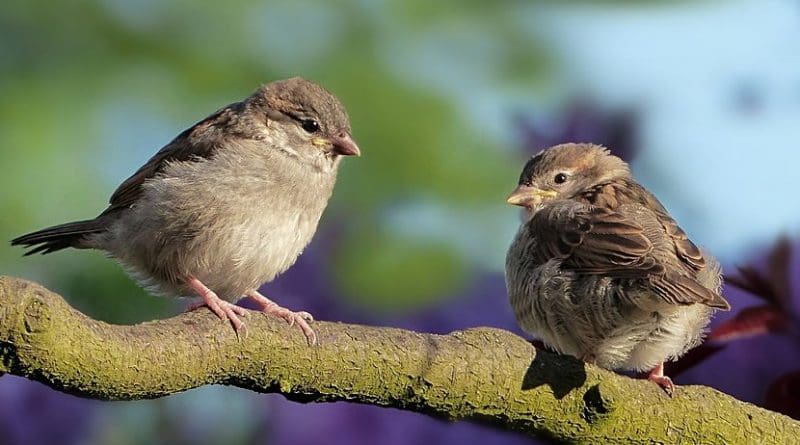Plump Songbirds More Likely To Survive Migration Over Gulf Of Mexico
A kilometer above Fort Morgan, Alabama, small migratory birds face a critical decision. Ahead lies a thousand kilometers of open water, the Gulf of Mexico, and a 22- to 24-hour flight without rest or food. On the other side, if they make it, they’ll continue the journey to their South American winter habitat. For some, the journey will end in the waters of the Gulf.
With many migratory birds in decline, ornithologists are keen to identify “choke points” along their routes. Large geographic barriers like the Gulf are likely suspects, but survival rates across these barriers are difficult to estimate. A new study published in Proceedings of the Royal Society B provides the first survival estimates for small migratory birds crossing the Gulf, and the factors that explain whether or not they survive the crossing.
“We know a lot of birds die going across the Gulf because we see birds floating up on shore and in the stomach contents of sharks. We just don’t know how many and how risky it is to go across the Gulf,” says Mike Ward, lead author of the study, an associate professor in the Department of Natural Resources and Environmental Sciences at U of I, and avian ecologist at the Illinois Natural History Survey. “We figured out that survival depends on a combination of how fat they are – the fatter the better – and how much wind they have at their back.”
Ward and his colleagues focused on Swainson’s thrushes, small sparrow-sized birds that travel between Canada and South America twice each year. Some avoid the Gulf, opting to fly over Texas and mainland Mexico, but many more brave the treacherous shortcut between Fort Morgan and the Yucatan Peninsula. Why take the risk?
“They want to get to their wintering location as soon as possible because birds are territorial in the wintering grounds. They want to get to Columbia or Venezuela to get the best habitat for the winter,” Ward explains.
In the study, Ward’s colleagues captured Swainson’s thrushes at Fort Morgan each fall for five years. For each of the 139 birds they caught, the researchers gauged fat reserves, determined sex, and used eyelash glue to attach a tiny radio transmitter to the bird’s back. Meanwhile, Ward was on the Yucatan side erecting radio towers to pick up signals from the birds’ transmitters.
Using sophisticated analyses, the team estimated survival probabilities for all departing birds. Using data from both the birds detected and not detected on the Yucatan side, they were able to determine the factors that predicted which individuals were likely to survive the crossing.
The researchers state, “Survival estimates varied with wind profit and fat, but generally, fat birds departing on days with favorable wind profits had an apparent survival probability of greater than 0.90, while lean individuals with no or negative wind profits had less than 0.33.” In other words, the fatter the bird and the stronger the tailwind, the greater the probability of survival.
Going back to that moment of decision above Fort Morgan – to cross or not to cross – Ward says birds can usually tell if they’re ready to make the trip.
“Birds that aren’t fat enough know it. When they fly up in the sky at dusk, they circle around a little bit and head back north to find more food. The really fat ones – we call them little butterballs – fly up in the sky then start heading south. As long as they don’t have a strong wind in their face, they should be fine. Individuals with intermediate levels of fat have to make a tough decision,” he says.
Ward says that from a conservation perspective there’s not much people can do to control the wind, but conservation efforts can improve birds’ chances of surviving the journey across the Gulf. The action that people can do is help birds get fat.
“If people throughout the migration corridor provide habitat and food sources for birds to add fat, they’re facilitating their ability to cross the Gulf even if the winds aren’t ideal. Whether it’s planting native shrubs in your backyard, or setting aside a big tract of forest, I’m a big proponent that every small thing helps.”

